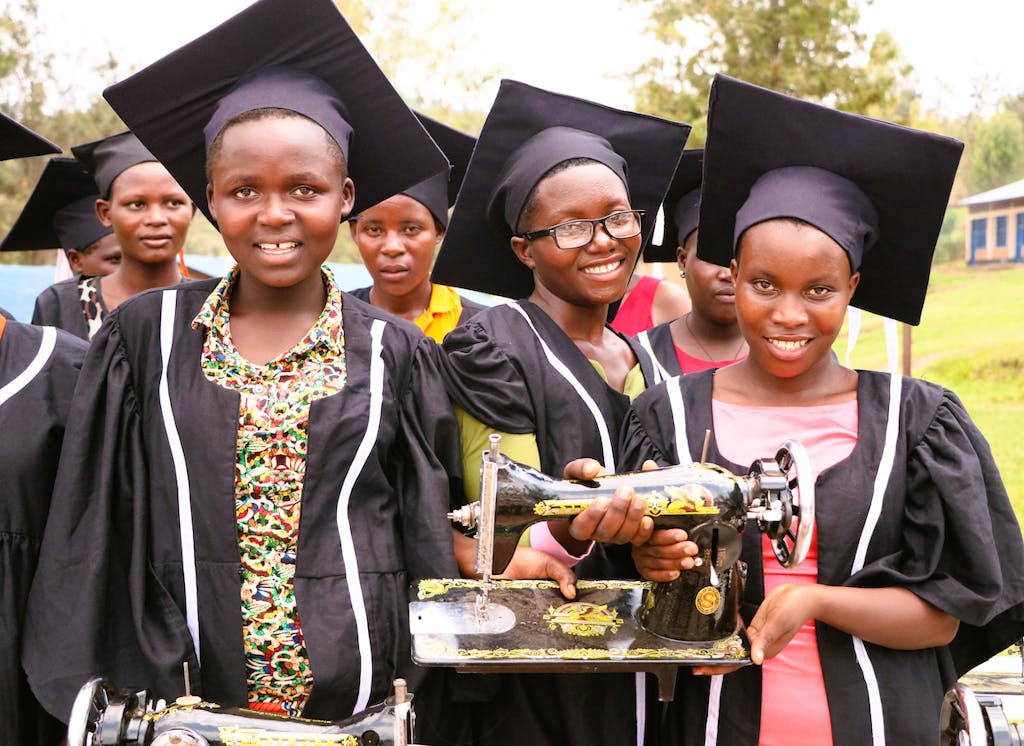Empowering Women and Girls in Rwanda
From top students to community leaders – Grace, Aimee, Jeanne, and Muhorakeye, young girls in Rwanda, are showing what’s possible with the support of generous donors like you. Each of them is transforming their life through education, and necessary resources, proving that when girls are empowered, their potential is limitless.
Young Girls in Rwanda Redefining What’s Possible
Grace is 12-years old and a top student in her class. “Education opens doors for me, and success is my goal because hard work knows no limits,” she says. Grace is proof that with the right opportunities, education can change the course of a girl’s life.
Aimee is 12 years old and is a gifted poet who uses her words to inspire other girls in her community to believe in themselves and pursue their dreams. “My voice is my strength, and my pen is my power,” Aimee says. Through her poetry, she encourages other girls to speak up and take action, showing that their voices are important and can create change.
Jeanne is 20-years old and graduated from a vocational program in tailoring. She is now earning an income while contributing to her community.
Muhorakeye is 23-years old and is using her knowledge of modern farming techniques to improve agriculture in her community. These girls and young women are not only changing their futures but are inspiring other girls in their communities to pursue their passions.

The Impact on Families and Communities
Thanks to the support of donors like you, the lives of families and communities in Rwanda are being transformed. Parents are becoming more involved in their children’s education and well-being. Through workshops on financial literacy, nutrition, and hygiene, families are now better equipped to provide for their children and create a nurturing environment for them to thrive.
Access to clean water and safe sanitation facilities has been a game-changer for these families. Girls and boys now have clean water to drink, and they no longer have to miss school because of illnesses caused by dirty water, menstrual hygiene challenges, or the long walks to fetch water. This allows them to focus on their education without these barriers.
Families and communities are working together to support education and empower girls. Parents are encouraging their daughters to dream big and pursue leadership roles. As a result, more girls are graduating and giving back to their communities.

A Brighter Future for the Next Generation
The stories of Grace, Aimee, Jeanne, and Muhorakeye show what’s possible when girls are empowered with education and resources. These young women have become leaders in their families and communities, and they serve as role models for future generations of girls in Rwanda. Their achievements prove that with the right support, education can transform lives and communities.

With your continued support, more girls will have the opportunity to excel in their academic, vocational, and leadership pursuits. Your generosity ensures that every girl has the chance to achieve her dreams and contribute to a brighter future for her family and community.

